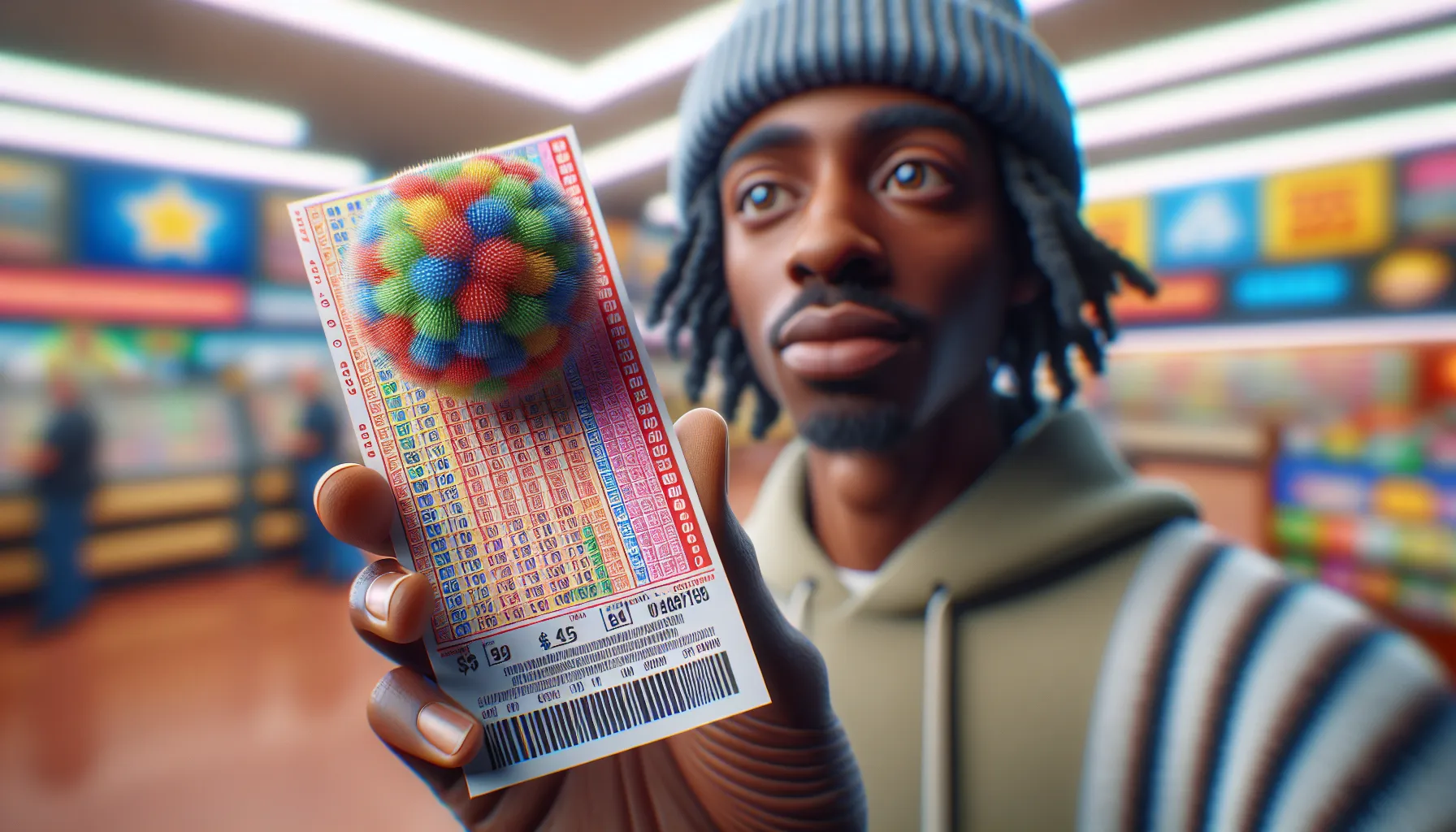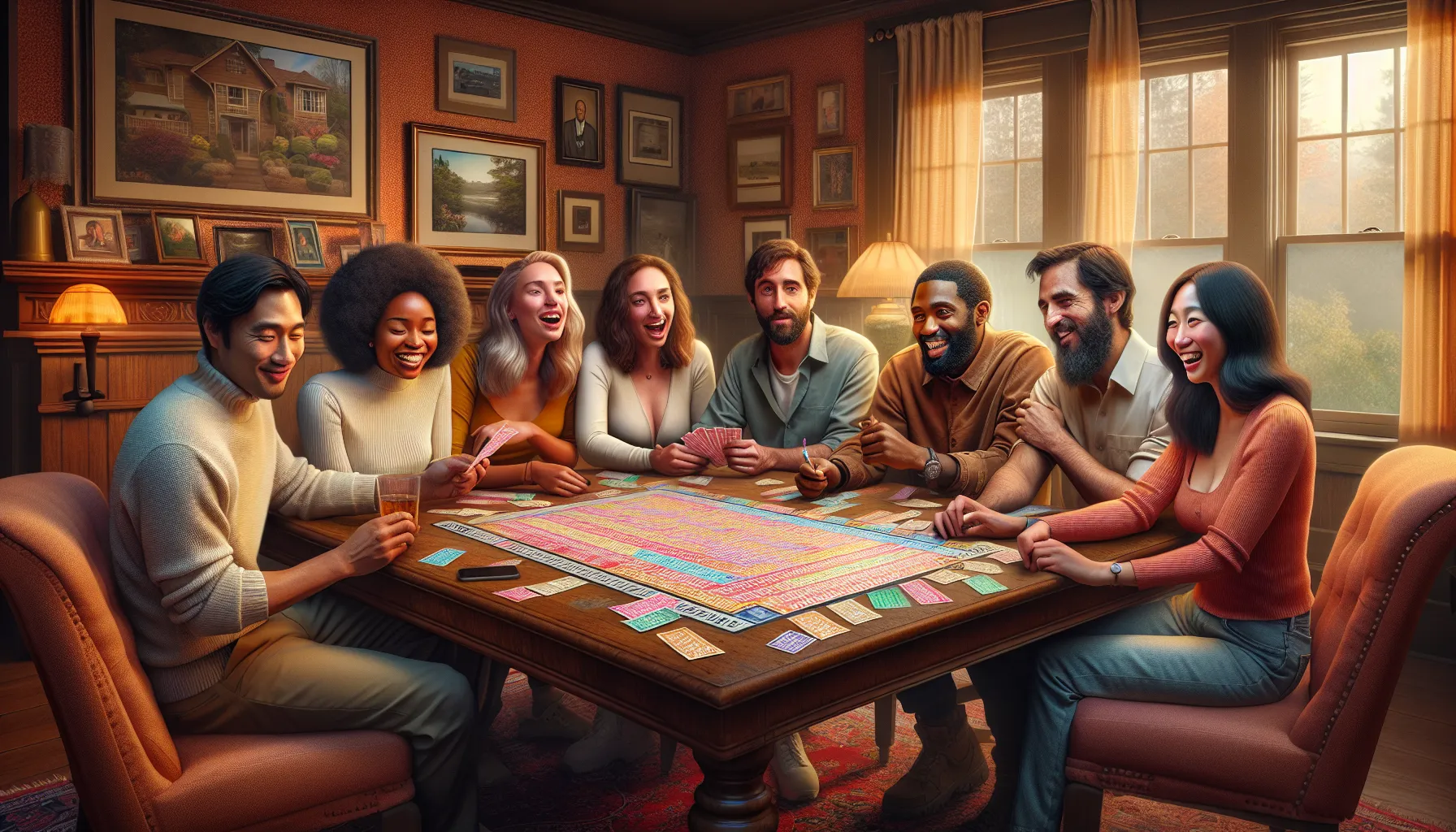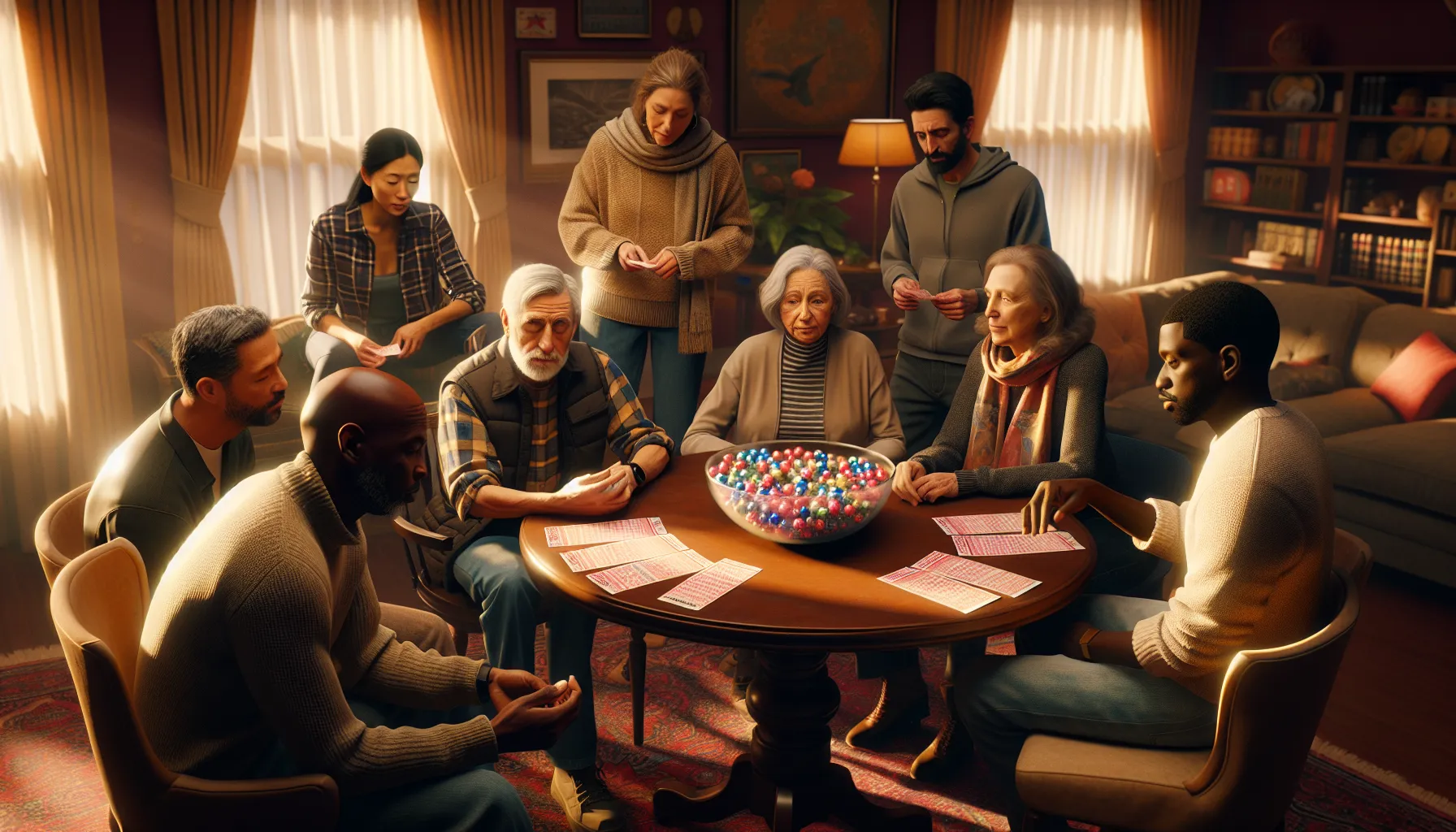Comment Gagner au Loto: Tips and Strategies to Improve Your Lottery Odds
Key Takeaways
- Understand the odds: Familiarize yourself with the probabilities of different lottery games to make informed decisions and focus on games with better odds.
- Diversify your number selection: Avoid common patterns or limiting yourself to dates; consider using random number generators for a more balanced approach.
- Join lottery pools: Pooling resources with others increases coverage of number combinations, raising your chances of winning without extra costs.
- Set realistic expectations: Treat the lottery as entertainment, not a financial solution, and understand that no strategy guarantees a win.
- Budget responsibly: Avoid overspending on tickets and maintain a fixed budget to ensure the activity remains enjoyable.
- Steer clear of superstitions: Recognize that past draws or « lucky numbers » don’t affect future outcomes, as lottery results are entirely random.
Winning the lottery has always been one of those dreams we all entertain at some point. The idea of picking the right numbers and waking up to a life-changing jackpot is undeniably exciting. But let’s be honest, the odds can feel overwhelming, and it’s easy to wonder if there’s any way to improve your chances.
Understanding « Comment Gagner Au Loto »
Improving lottery success involves understanding how lotteries work and what factors impact outcomes. While the lottery is primarily based on chance, practical strategies exist that might enhance your approach.
Knowing the Odds
Every lottery game has fixed odds based on its design. For instance, popular games like EuroMillions have odds of 1 in 139,838,160. Focusing on games with better odds, such as local lotteries, increases the probability of winning smaller prizes.
Choosing Ticket Numbers
Using random number generators ensures unbiased ticket choices, while selecting numbers based on significant dates might restrict options. Some players choose less frequently picked combinations to avoid splitting prizes if they win.
Joining Lottery Pools
Participating in lottery pools, like office syndicates, increases coverage of number combinations without additional cost per individual. Larger groups amplify potential winnings but require agreement on prize distributions.
Setting Realistic Expectations
Though strategies might increase statistical chances, no method guarantees a win. Treating the lottery as entertainment rather than a source of income ensures a balanced perspective. Always allocate a budget and avoid overspending.
The Mathematics Behind Lottery Probability

Understanding lottery probability is crucial for managing expectations and evaluating chances accurately. Lottery outcomes rely on mathematical odds rather than luck or patterns.
Odds Of Winning
Lottery odds are calculated using combinatorics. For instance, a typical 6/49 game requires selecting 6 numbers correctly out of 49. The formula for calculating the total combinations is:
C(n, r) = n! / [r!(n – r)!]
For 6/49, this equates to 13,983,816 possible combinations. This means a single ticket represents a 1 in 13,983,816 chance of winning. If a lottery includes bonus numbers or additional rules, odds shift further. Smaller lotteries, like 5/35, offer better odds (e.g., 1 in 324,632).
Buying multiple tickets increases coverage but doesn’t alter fundamental odds since other players may hold winning tickets.
Common Misconceptions About Luck
Misconceptions about lucky numbers or recurring patterns often lead to ineffective strategies. Past winning numbers don’t influence future outcomes since lotteries use random generation. Belief in « hot » or « cold » numbers ignores the independence of each draw.
Superstitions, such as personal rituals or choosing birthdays, limit number range, reducing the likelihood of covering all combinations. For example, choosing birth dates restricts numbers to 31 or below in many cases, often overlooking higher-value possibilities. Understanding these misconceptions allows for more rational play.
Tips And Strategies For Increasing Your Chances

Lottery outcomes rely on chance, but specific approaches can improve how you play and enhance your experience. Here are a few practical methods to consider.
Popular Number Selection Methods
Picking numbers based on strategies is common. Some prefer birthdays, anniversaries, or other personal dates, leading to choices limited between 1 and 31. These numbers might be overused, resulting in shared winnings if the combinations win. Others use quick picks or random number generators, which distribute selections more evenly across the range. Selecting less common numbers and avoiding patterns like sequential combinations further diversifies your ticket.
Joining Lottery Pools
Participating in lottery pools increases your chance of winning while distributing the cost. I’ve seen groups of colleagues or friends pooling resources to buy multiple tickets, covering more combinations than a single ticket allows. If a pool ticket wins, the prize is shared among members, which might not yield the entire jackpot but boosts the possibility of securing a payout.
The Role Of Consistency
Consistently playing the same numbers or participating in every draw helps ensure you don’t skip potential winning opportunities. While consistency doesn’t alter odds, missing drawings decreases your overall chances of hitting a win. Setting a weekly or monthly budget for tickets keeps spending manageable while maintaining regular participation in games with better odds.
Avoiding Common Lottery Mistakes

Playing the lottery can be exciting, but mistakes often reduce the fun or lead to unnecessary stress. Recognizing and avoiding common pitfalls ensures a better experience.
Over-Reliance On Superstition
Many players stick to lucky numbers or patterns, but lottery outcomes are random. Superstition, like choosing birthdays or anniversaries, limits your number range to 1-31, reducing your chances of covering all combinations in games with higher number pools. Historical winning numbers also don’t offer an edge since past draws don’t influence future results. I avoid these traps by using random number generators or quick picks, which ensure a balanced, impartial selection.
Spending Beyond Your Means
Excessive spending increases financial pressure without improving odds significantly. For instance, buying 10 tickets in a 6/49 game only increases coverage minimally, leaving a 1 in 1,398,380 chance instead of 1 in 13,983,816. I’ve found setting a fixed lottery budget prevents overspending while keeping the activity enjoyable. If you feel tempted to spend more, consider joining a pool to share costs and expand your ticket range without overstepping financial limits.
The Psychological Side Of Playing The Lottery
Playing the lottery isn’t just about numbers and odds; it taps into emotions, dreams, and behavior. Understanding the psychological aspects can help make the experience more enjoyable and balanced.
Managing Expectations
The lottery captures imaginations with the possibility of life-changing winnings. Keeping expectations realistic prevents disappointment, as the odds heavily favor non-winning outcomes. I remind myself that every ticket is a chance, not a guarantee, and approach it as a form of entertainment rather than a financial plan. When I visualize how I’d spend the jackpot, I also remind myself that the joy is in imagining the « what ifs. »
Staying Responsible
Responsible play ensures that the lottery remains enjoyable without creating financial or emotional strain. I set a strict budget to avoid spending more than I can afford to lose. Rather than chasing losses, I focus on the fun of participating. When I feel tempted to spend more, I step back and consider whether it’s adding stress. Sharing the cost through group entries keeps it within limits while increasing opportunities. Playing responsibly helps maintain a positive relationship with lottery activities.
Conclusion
Winning the lottery might feel like a dream, but it’s important to approach it with the right mindset. While luck plays the biggest role, using smart strategies like diversifying your numbers, joining a pool, and sticking to a budget can make the experience more enjoyable.
Remember, the lottery is meant to be fun, not a financial plan. By playing responsibly and keeping realistic expectations, you can enjoy the thrill without unnecessary stress. Who knows? Your ticket might just surprise you one day!
Frequently Asked Questions
What are the odds of winning the lottery?
The odds of winning the lottery depend on the specific game you play. For example, a typical 6/49 lottery has approximately a 1 in 13,983,816 chance of winning the jackpot. It’s important to understand that all lotteries are primarily based on random chance.
Does buying more lottery tickets improve my chances of winning?
Buying more tickets increases your total number of chances, but it does not significantly alter the odds, as each ticket still retains the same individual probability of winning. Always play within a set budget.
Can I use lucky numbers to increase my chances of winning?
No. Using « lucky numbers » or patterns does not enhance your chances of winning. Lottery outcomes are entirely random, and relying on superstitions can limit your number selection.
Are quick picks or random number generators better than choosing my own numbers?
Using quick picks or random number generators can provide a more balanced and diversified number selection. These options help avoid common pitfalls, like overusing personal dates or popular patterns.
What’s a lottery pool, and how does it work?
A lottery pool is a group of people who combine their money to buy multiple tickets. If the group wins, the prize is shared among members. It’s an effective way to increase coverage without overspending.
Does the choice of lottery game affect my chances of winning?
Yes. Smaller or local lotteries often have better odds of winning compared to national lotteries with larger jackpots. Research the odds before choosing a game.
Can past winning numbers predict future lottery results?
No. Past lottery results have no bearing on future outcomes. Each draw is an independent, random event, so history does not repeat itself in lotteries.
How can I avoid overspending on lottery tickets?
Set a specific budget for lottery tickets and stick to it. Consider the lottery an entertainment expense rather than a potential income source to avoid financial strain.
What are common mistakes lottery players make?
Common mistakes include relying on superstitions, overspending, choosing limited number ranges, and thinking patterns or past numbers influence outcomes. Staying realistic and informed is key.
Should I play the same numbers every time?
Playing the same numbers consistently can ensure you don’t miss a win with your chosen numbers, but it doesn’t change the odds. Pick a strategy that works for you while staying within your budget.
How can I make playing the lottery more enjoyable?
Approach the lottery as a form of entertainment, not as a money-making strategy. Set realistic expectations, create a budget, and consider joining a lottery pool to share costs and excitement with others.